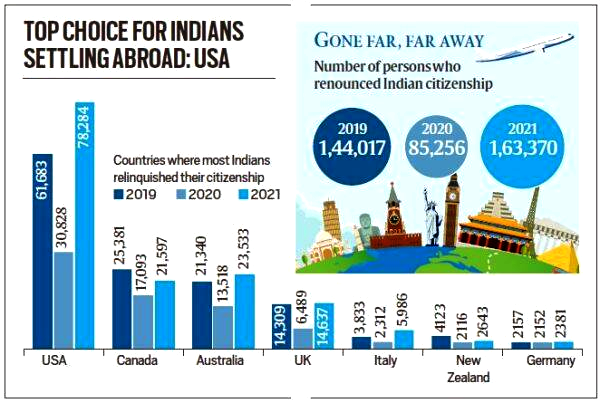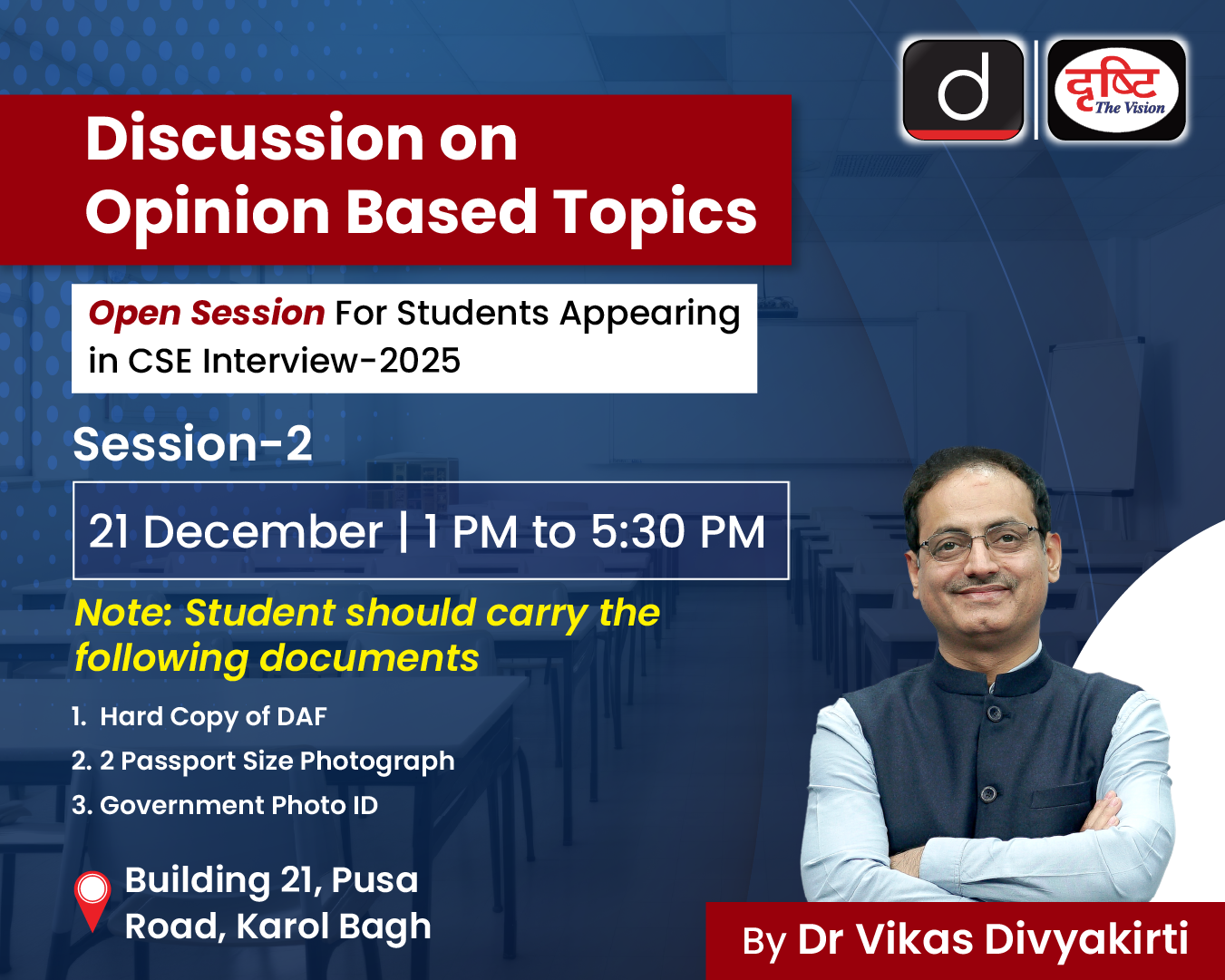Indian Polity
Renunciation of Indian Citizenship
- 20 Jul 2022
- 5 min read
For Prelims: Citizenship, Indian Diaspora, Global Migration Review
For Mains: Renunciation of Indian Citizenship
Why in News?
The Ministry of Home Affairs stated that over 1.6 lakh Indians renounced their Indian citizenship in 2021.
- The numbers marked a sharp increase in comparison to the 85,256 people who gave up their Indian citizenship in the Covid-hit year of 2020, and a somewhat smaller increase over the 1.44 lakh who surrendered their passports in 2019.
What is Citizenship?
- Constitutional Provisions:
- Citizenship is listed in the Union List under the Constitution and thus is under the exclusive jurisdiction of Parliament.
- The Constitution does not define the term ‘citizen’ but details of various categories of persons who are entitled to citizenship are given in Part 2 (Articles 5 to 11).
- Acquisition of Indian Citizenship:
- The Citizenship Act of 1955 prescribes five ways of acquiring citizenship, viz, birth, descent, registration, naturalisation and incorporation of territory.
- Citizenship (Amendment) Act, 2019:
- The Act amended the law to fast-track citizenship for religious minorities, specifically Hindus, Sikhs, Buddhists, Jains, Parsis and Christians, from Afghanistan, Bangladesh and Pakistan who entered India prior to 2015.
- The requirement for them to stay in India for at least 11 years before applying for Indian citizenship has been reduced to five years.
Why do People Relinquish Citizenship?
- General:
- People leave their countries for better jobs and living conditions, and some are pushed out by climate change or unfavourable political situations at home.
- According to a 2020 report by the Global Wealth Migration Review,
- High net worth individuals around the world who renounce citizenship acquired at birth may do so for reasons of rising crime rates or the lack of business opportunities at home.
- It can also be a sign of bad things to come as (they) are often the first people to leave — they have the means to leave unlike middle class citizens.
- Among the other reasons are safety of women and children, lifestyle factors like climate and pollution, financial concerns including taxes, better healthcare for families and educational opportunities for children, and to escape oppressive governments.
- India:
- For India with newer generations holding passports of other countries, some older Indians are choosing to leave to be with family settled overseas. In some high-profile cases, people who leave India may be fleeing the law or fear legal action for alleged crimes.
- The post-Independence diasporic community has been going (out of India) for jobs and higher education but the pre-Independence diasporic movement was completely different, witnessing forced and contractual labour.
- Since India does not provide dual citizenship, therefore one has to renounce his/her Indian Citizenship for acquiring citizenship of another country.
- Countries where Indians have been migrating for long or where people have family or friends would be more automatic choices, as would considerations such as easier paperwork and more welcoming social and ethnic environments.
- For India with newer generations holding passports of other countries, some older Indians are choosing to leave to be with family settled overseas. In some high-profile cases, people who leave India may be fleeing the law or fear legal action for alleged crimes.
What are the Ways to Renounce Citizenship in India?
- Voluntary Renunciation:
- If an Indian citizen wishes, who is of full age and capacity, he can relinquish citizenship of India by his will.
- When a person relinquishes his citizenship, every minor child of that person also loses Indian citizenship. However, when such a child attains the age of 18, he may resume Indian citizenship.
- By Termination:
- The Constitution of India provides single citizenship. It means an Indian person can only be a citizen of one country at a time.
- If a person takes the citizenship of another country, then his Indian citizenship ends automatically. However, this provision does not apply when India is busy in war.
- Deprivation by Government:
- The Government of India may terminate the citizenship of an Indian citizen if;
- The citizen has disrespected the Constitution.
- Has obtained citizenship by fraud.
- The citizen has unlawfully traded or communicated with the enemy during a war.
- Within 5 years of registration or naturalisation, a citizen has been sentenced to 2 years of imprisonment in any country.
- The citizen has been living outside India for 7 years continuously.
- The Government of India may terminate the citizenship of an Indian citizen if;








